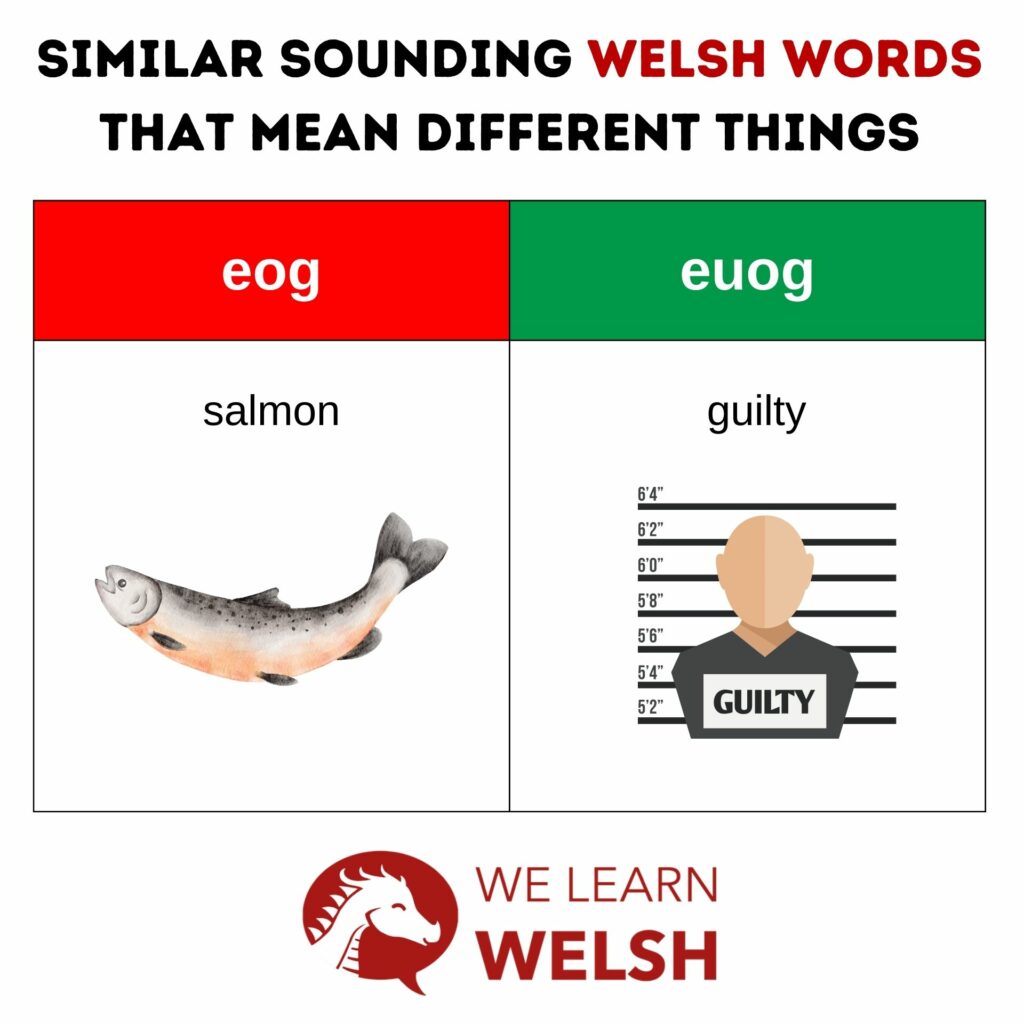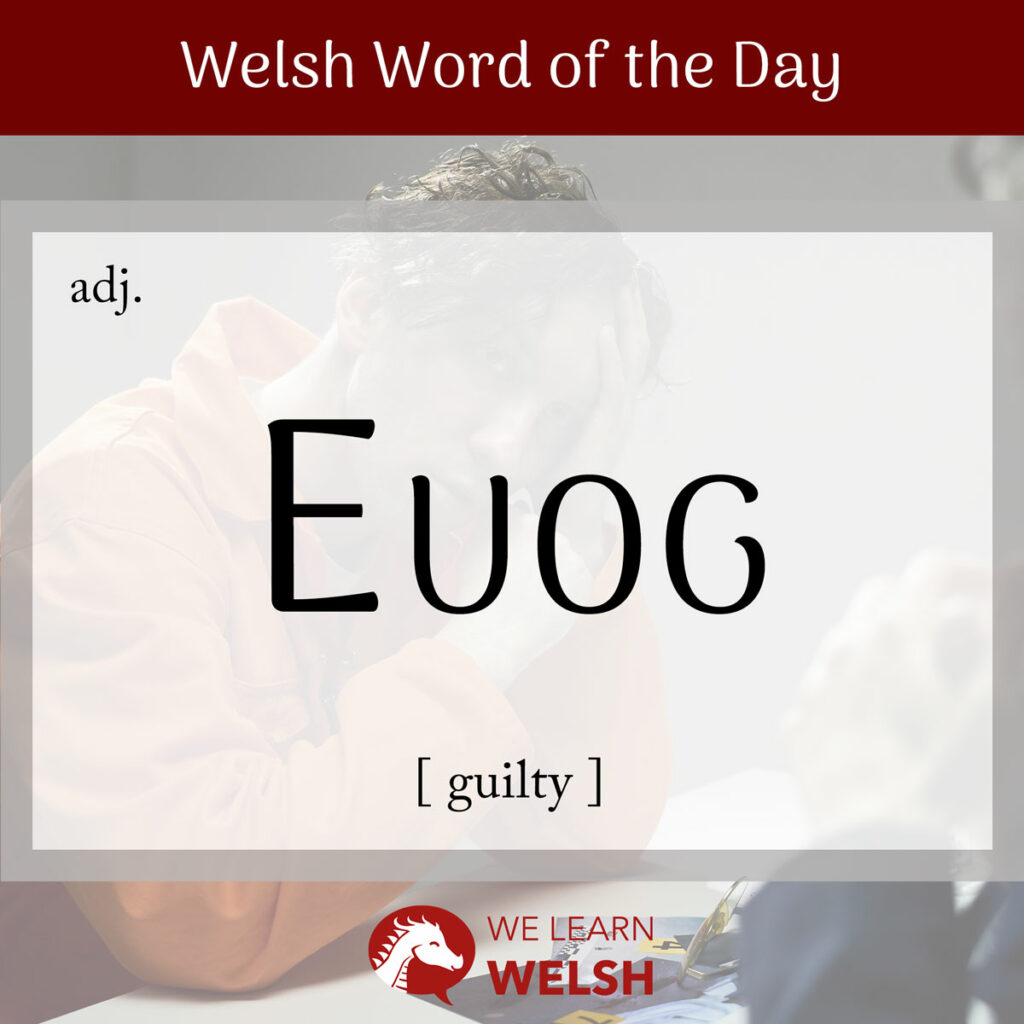The Welsh adjective euog usually means guilty or blameworthy, although it can also be used as a translation for deceitful, or simply wicked.
euog
guilty
The initial eu diphthong has a heavier, fuller sound in the Northern Welsh than in the Southern pronunciation.
Euog is actually an altered form of another adjective, gau, which means false or fake. Gau comes from the proto-Celtic *gawa. In euog, it has been combined with the suffix –og, which is usually used in Welsh in conjunction with a noun, indicating, essentially, that there is a lot of that noun.
For example, carregog means stony, because carreg means stone. So, euog literally translates to having a lot of falseness, which explains the meaning deceitfulness, with the more common meaning guilty likely having developed later.
Although euog is the only common Welsh word that specifically means guilty, blameworthy can also be beius, which comes from bai, meaning fault. Deceitful could be translated as twyllodrus, anonest or ffals, and for wicked, it’s common to simply use drwg (bad).
Euog doesn’t ever mutate. It can change to describe plural nouns (to euogion) but this is not a hard and fast rule in modern colloquial Welsh.
Roedd y plentyn yn edrych yn euog iawn.
The child was looking very guilty.

To refer to someone being guiltier, use euocach, and guiltiest is euocaf. Welsh also features a comparative form of adjectives which means, in this case, as guilty as (euoced). Another closely related term is euogrwydd, which means guilt.
The word for innocent changes depending on its precise meaning. If you are talking about culpability, you would add the negative prefix di– to euog to form dieuog. If you’re using it in a more moral or religious sense you’d be more likely to use dibechod (sinless) and naïve is probably best translated as diniwed, which literally means harmless.
The word euogfarn means conviction, and it comes from combining euog with barn, which means opinion. It’s a feminine noun and its plural is euogfarnau. Note the difference between this and euogfarnu, which is the verb form and means to convict.
If you’re particularly interested in criminal law, you might want to learn the terms euogfarn droseddol (a criminal conviction), euogfarn anghyfiawn (a wrongful conviction), and euogfarnau blaenorol (previous convictions). Someone who has been condemned is euogfarnedig.
Ydy hi’n euog neu’n ddieuog?
Is she guilty or innocent?
Here are some of the phrases in which euog is most likely to be used.
- pledio’n euog = to plead guilty
- dyfarnu’n euog = to find guilty
- teimlo’n euog = to feel guilty
- euog o drosedd = guilty of a crime
- cyfrif rhywun yn euog = to hold someone to account
- edrych yn euog = to look guilty
- euog fel pechod = guilty as sin

If the rheithfarn (verdict) of the rheithgor (jury) is that someone is euog, they are likely to be ordered to complete gwasanaeth cymunedol (community service), pay a dirwy (fine), or even be committed to carchar (prison).
On a less serious note, euog like guilty can be used outside of a barnwrol (judicial) sense to describe simply how a person feels or looks, especially when they are mewn cywilydd (ashamed), edifeiriol (regretful), or feel cyfrifoldeb (responsibility) for something. If you want to express this idiomatically, you can say that someone oedd yn edrych fel ci lladd defaid (was looking like a dog that kills sheep). We all know that look – on dogs and people!


